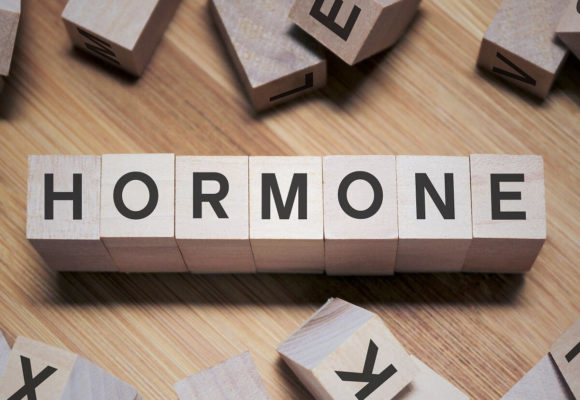1) Grab a FREE copy (Value $14.95) of one of my books Thyroid Symptom Overload
Just pay shipping $7.95 for any US orders. Or, if you want to pay full price plus shipping, order from Amazon :)
2) Take our Thyroid Quiz today and find out what "Thyroid Type" you have
This quiz will help you quickly discover where your symptoms are stemming from.
3) Join Our Thyroid Advocate Membership Site - Natural Thyroid Academy
FREE for a limited time. No credit card required.
4) Work with me and my team privately
Schedule your FREE 15 minute phone consultation and we can find out the best way to help you specifically.
Our body is exceptionally complex. It’s really a miracle that every system is so beautifully organized. The intricate connection between various systems in our body marks the interdependence of these systems. Let’s find out the entangled relationship between gluten and thyroid.
What is Gluten?
Gluten is a complex of storage proteins called prolamin and glutelin. It acts like a glue to maintain the shape of food. It is present in various grass related grains namely wheat, oat, barley, rye, related species and their products.
Gluten Intolerance:
It is pretty common for people to talk about being gluten intolerant these days. But what is gluten intolerance? Gluten intolerance is literally defined as intolerance to gluten. It’s the reaction that body executes when gluten is ingested. Gluten, as I mentioned earlier, is a group of proteins. Some of them are easily broken down by the proteases (protein digesting enzymes) present in our gut. While some of them like gliadin, are only partially broken down due to their compact structures. Particularly in gluten intolerance, these oligopeptides (partial broken down proteins) are subjected to immune responses.
When gluten breaches the intestinal barrier, and enters the blood, antibodies are produced to degrade it. The immune response against gluten causes many symptoms like gastrointestinal problems, joint pain, fatigue and depression.
The Thyroid is Adversely Affected by Gluten Intolerance:
It’s a fact that gluten that is not properly digested in stomach has a direct influence on thyroid. But what’s the connection? To understand this, we need to have a bit of knowledge about the antigen antibody complex system. Antibodies bind to target antigens (toxic substances) at specific “receptor sites”.
These receptor sites are easily understood by imagining them as locks. Only specific antibodies (key) for that receptor site can unlock it and carry out the desired function to destroy antigen. But unlike a rigid structure, the receptor site shows some degree of flexibility. As gluten has structural resemblance with thyroid, oftentimes our immune system mistakes the identity. Consequently, the antibodies produce against gluten start attacking thyroid instead of gluten, resulting in serious damage to thyroid. Hypothyroidism is the ultimate adverse outcome.
Is Gluten Intolerance and Celiac Disease the Same?
Celiac disease is only one of the many possible consequences of gluten intolerance. And celiac disease is not at all the same as gluten intolerance. Celiac disease is an autoimmune condition in which gluten ingestion causes severe damage of small intestine particularly microvilli in gluten intolerant individual. As villi are the structure primarily responsible for the absorption of nutrients, their destruction causes compromised nutrients supply. The prevalence of having autoimmune thyroid in celiac disease population is 26% leading to the most common autoimmune disease linked to it. (1999 study, Ventura, et al.)
What’s the Fate of Gluten in Healthy Population:
There’s no question that some proteins in gluten are hard to break off. Even in a normal individual, gliadin protein is not completely metabolized by proteases. It is only degraded to oligopeptides consisting of still chains of peptides. But the end products are not tagged for destruction by the immune system. Because there’s nothing wrong with it. The partially broken down protein remains in the gut, and is passed in the stool.
Diagnosis and Testing:
Gluten intolerance can be diagnosed by your primary medical doctor by identifying the presence of specific antibodies against gluten like anti-gliadin. Standard lab tests are often not accurate. In fact, many people get tested through blood work only to be told everything is normal.
Antibodies are found in blood only when gluten has crossed the intestinal barrier. So, milder form of gluten intolerance that is yet to be progressed at that level is missed. Stool analysis is a more sensitive tool, but it also detects the antibodies that haven’t entered the blood. Thyroid testing is also done because of the close association between the two diseases.
Gluten Free Diet for Autoimmune Thyroid:
The Thyroid is a very vital organ in our body that produces hormones with a prime function to regulate metabolism. When this gland doesn’t work properly, neither do you! As gluten destroys thyroid, it is important to cut off gluten 100% in your diet. There’s no “80/20” rule when it comes to gluten, says Chris Kresser. Even worse, the immune reaction may last up to 6 months if you ingest gluten and are gluten intolerant. So, it’s better to just avoid gluten. Although it’s not easy, it is worth it!
Is Gluten Still Not Safe if the Person is Not Gluten Sensitive?
Gluten is known to accelerate immune response. In Hashimoto’s thyroid, already immune system is flared up. So, gluten has a chance to make the condition even worse. Moreover, all forms of hypothyroidism (also Hashimoto’s thyroid) severely disturbs gastrointestinal tract. Thyroid hormones strongly affect the tight junctions of gastrointestinal tract. You can’t have a healthy gut if you don’t have a healthy thyroid So having hypothyroidism will ultimately result in leaky gut, no matter what, making you intolerant to gluten. Every gluten that slips pass the barrier cause accelerated immune response and further damage to your thyroid.
Conclusion:
Gluten is responsible for the immune response against gliadin protein (a component protein of gluten) in gluten sensitive individuals. As gluten and thyroid have structural resemblance, immune system mistakenly destroys thyroid instead of gluten. Even if it’s not the cause for autoimmune thyroid, the hypothyroidism damages the gut causing it to “leak”, AKA “Leaky Gut”, and eventually damages the thyroid. So, it’s better to follow a 100% gluten free diet in both cases; gluten intolerance and autoimmune thyroid.








